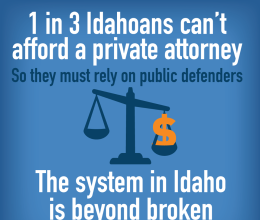

In speaking with members of the community this week, I was surprised to learn how few people were even aware of the execution of Richard Leavitt last Tuesday. On June 12, 2012 at 10:00am Leavitt officially ran out of options, unfortunately a fate more than 13,000 have met in the United States through legal execution. With this harsh of a punishment being given to so many, one would assume that it is due to the high rate of support from the population. However, this is not the case. As time goes on, fewer Americans are in support of the death penalty and are looking to life in prison as a much better answer for several reasons.
It is a fact that the process of execution versus life in prison is at least 2 to 3 times more costly, due to the long process of conviction and quite often an overturning of the sentence with potential reconviction later on. With the current state of the economy, one would believe that the government would be saving money at each opportunity available. This money could be put toward victim services, rehabilitation of the inmate, or into any number of more sensible services instead.
It’s easy to keep the offender in the center of the situation and forget about all others involved in execution. Family and friends of those executed are greatly affected from the mass media attention on the crime, as well as the devastation of never knowing whether or not their loved one received the justice our judicial system is designed to guarantee.
On the flip side, the victim’s friends and family members are also drug through a longer progression of pain, as death penalty convictions often take longer to finalize and draw much attention. They are subject to the same roller coaster of emotions as conviction of the death penalty often leads to a long and drawn out appeals process with possible reconviction. Life in prison is a much quicker, cheaper, and less traumatic process for everyone involved.
Innocence is another problem with allowing the death penalty to continue. Although there is no way to know the exact number of innocent people who have been sentenced to death, the Death Penalty Information Center’s Innocence List names 140 different people who were exonerated from death row since 1976. Who knows how many innocent people never had the luck of being exonerated before it was too late. Each year more people are found innocent due to DNA testing and further re-evaluation of cases, clearly our judicial system is not perfect enough to ensure that all those executed are truly guilty of the convicted crime.
To keep this from happening to Leavitt, the death warrant was signed in mid May with the execution scheduled less than a month later. The Tuesday before his scheduled execution the Idaho Commission of Pardons and Parole announced they would not consider his clemency request. Despite all else Leavitt still stood by his innocence to the end, passing two polygraph tests as well as his recent call into Today’s 6 Newsroom on June 8th proclaiming his innocence. Although there is still controversy about whether or not he was truly guilty, it unfortunately wasn’t enough for the courts to keep the execution from taking place. One would hope that Idaho Legislature would always take the necessary actions to prevent any errors in the judicial system, especially with such a finally damning sentence as death.
Sadly, instead of our state moving toward the elimination of this unnecessary and outdated law it has seemed to be taking steps backward. In 1995 the Idaho Legislature voted to pass Amendments allowing a greater authority for courts to impose the death penalty as well as further limit the appeal process for those convicted. This double negative means that they are able to charge more people with the death penalty and help prohibit them from their rights to appealing the decision.
Just days before the scheduled execution of Leavitt the 9th U.S. Circuit Court of Appeals ruled that witnesses are now allowed greater viewing of the entire execution, rather than simply post injection. These “witnesses” included media reporters, which represent the greater public. Transparency within the government is something the ACLU has always fought to maintain—it is crucial for people to be aware of what is taking place under the legislature’s control.
Representatives from the ACLU and community members met to protest the issue outside the prison south of Boise the morning of the execution. It was a somber and peaceful protest, as their statement against the death penalty was made.
Please join the ACLU in their fight to abolish the death penalty nationwide.
